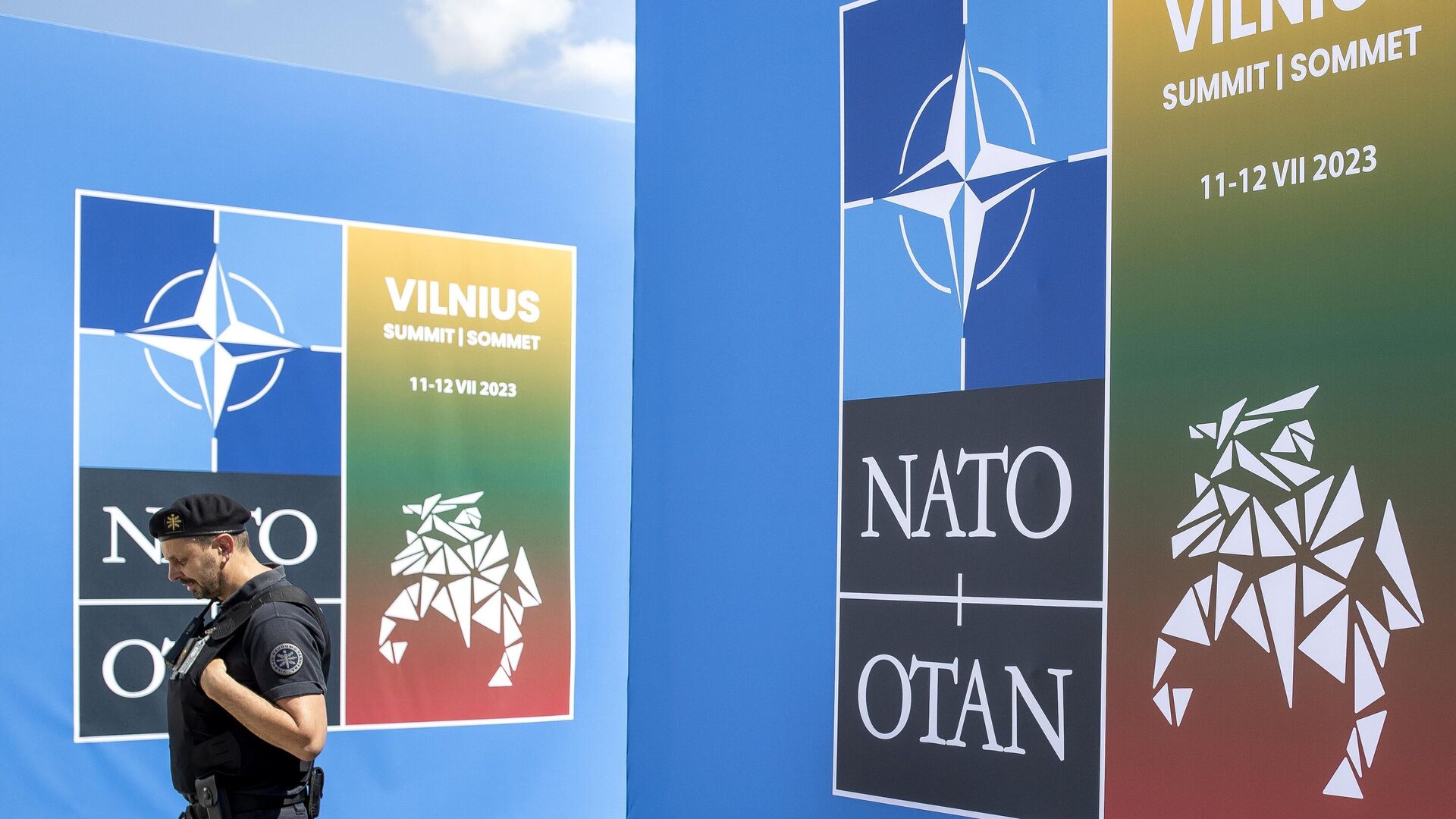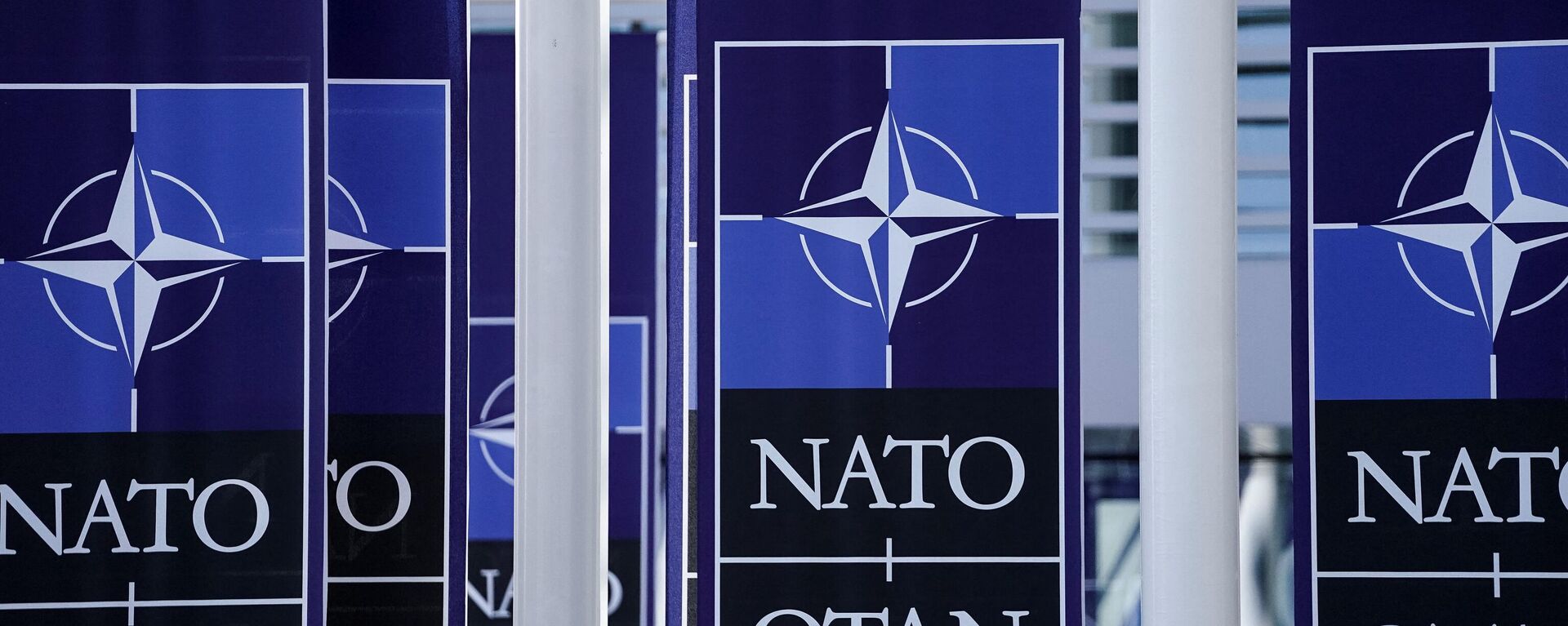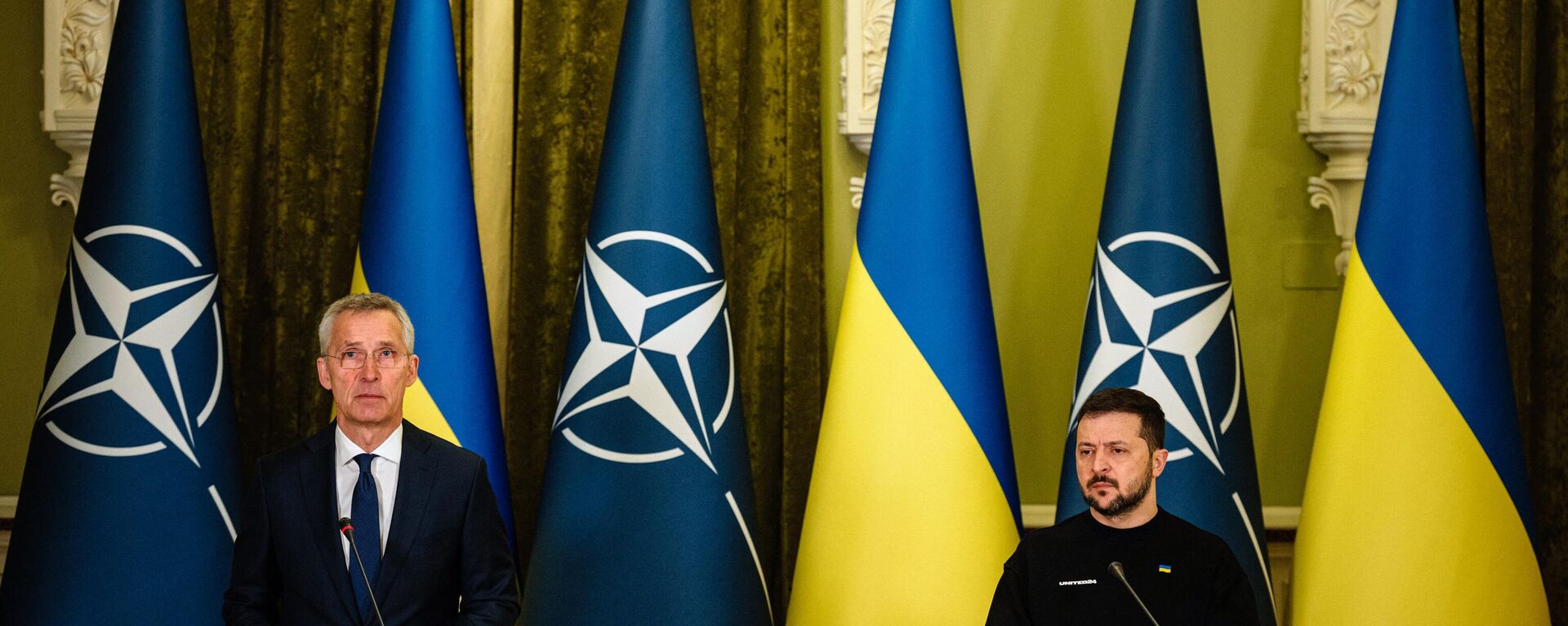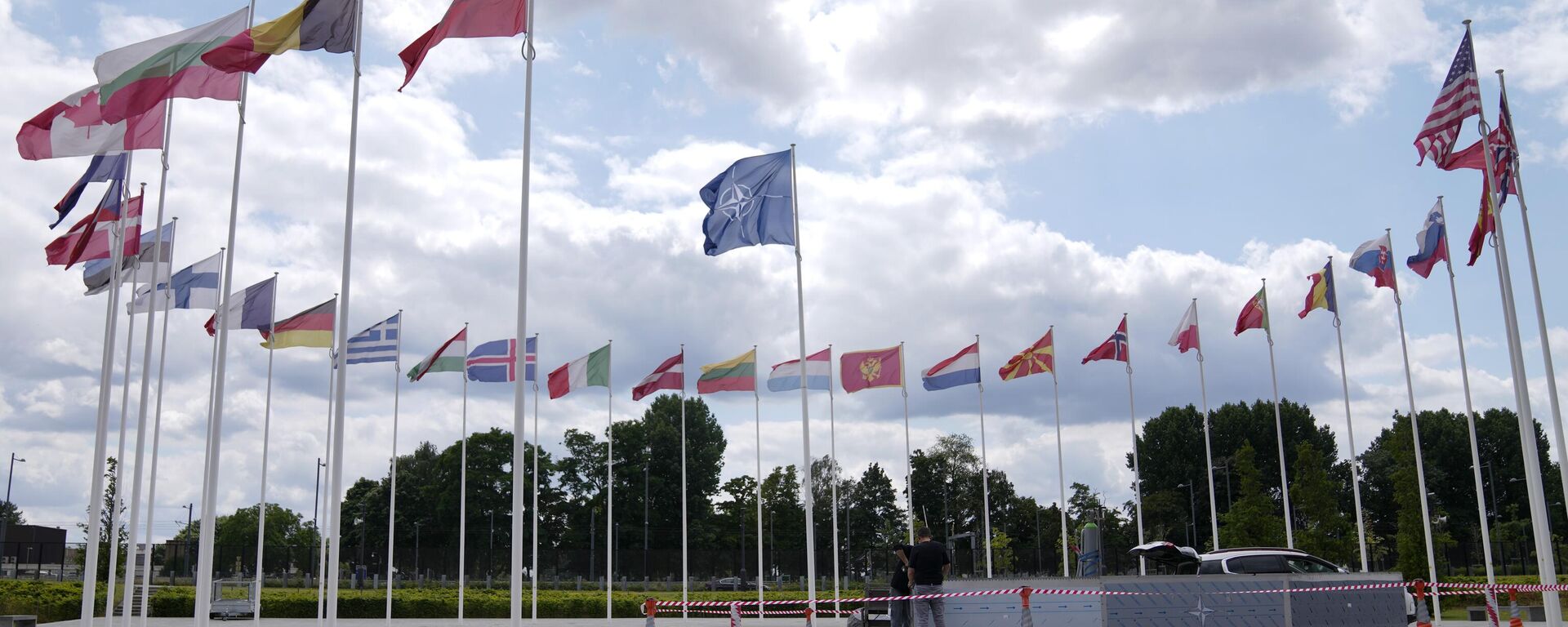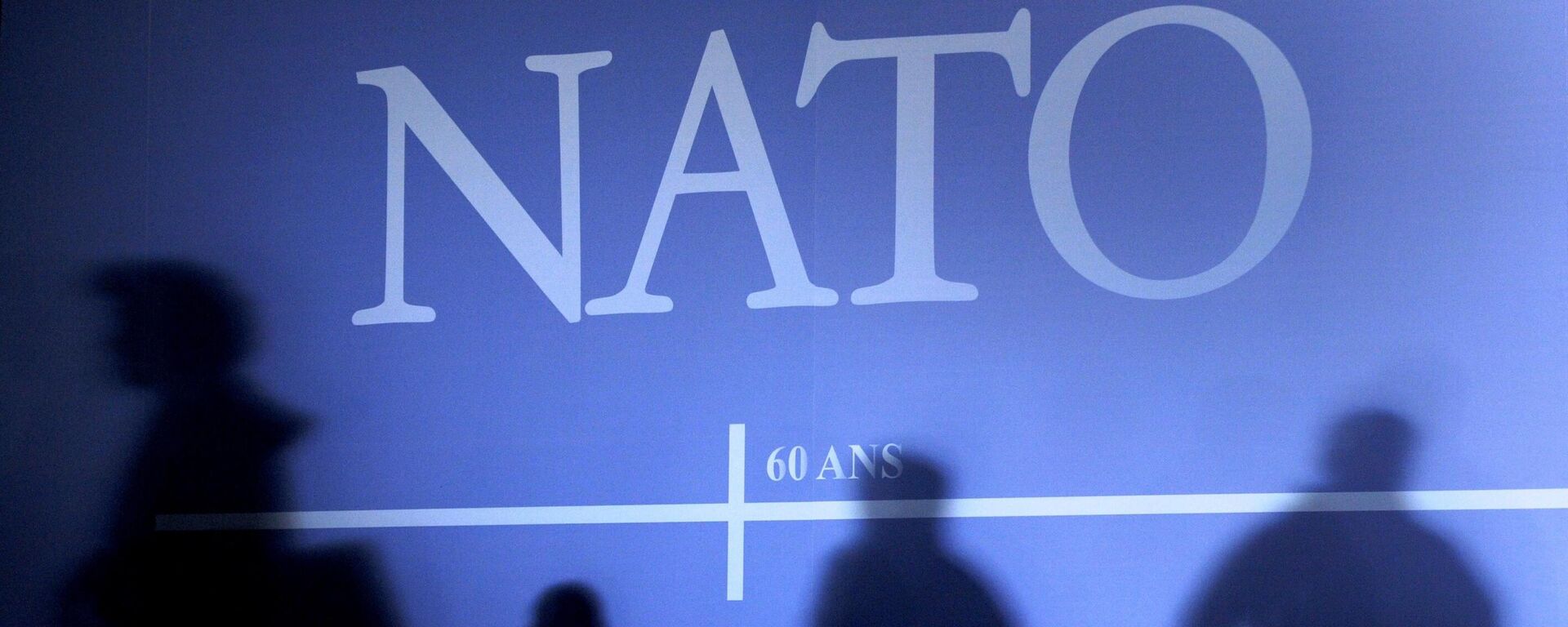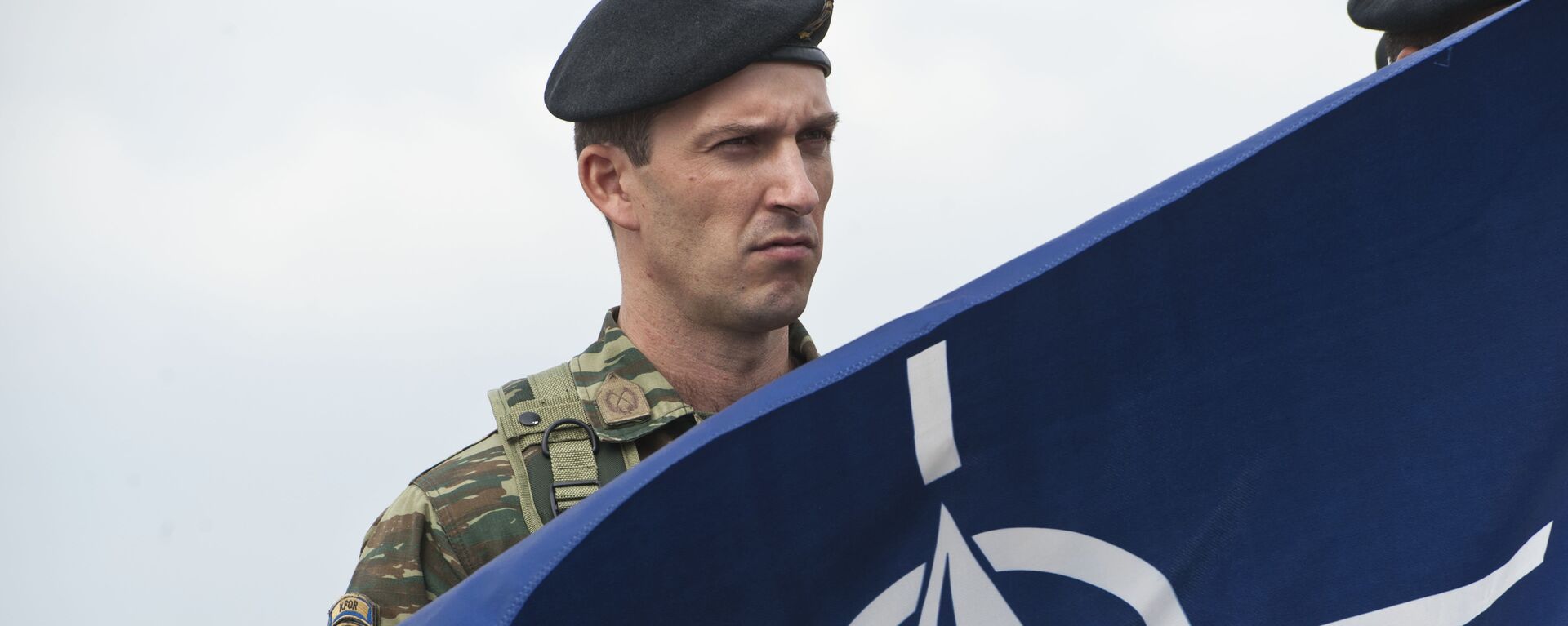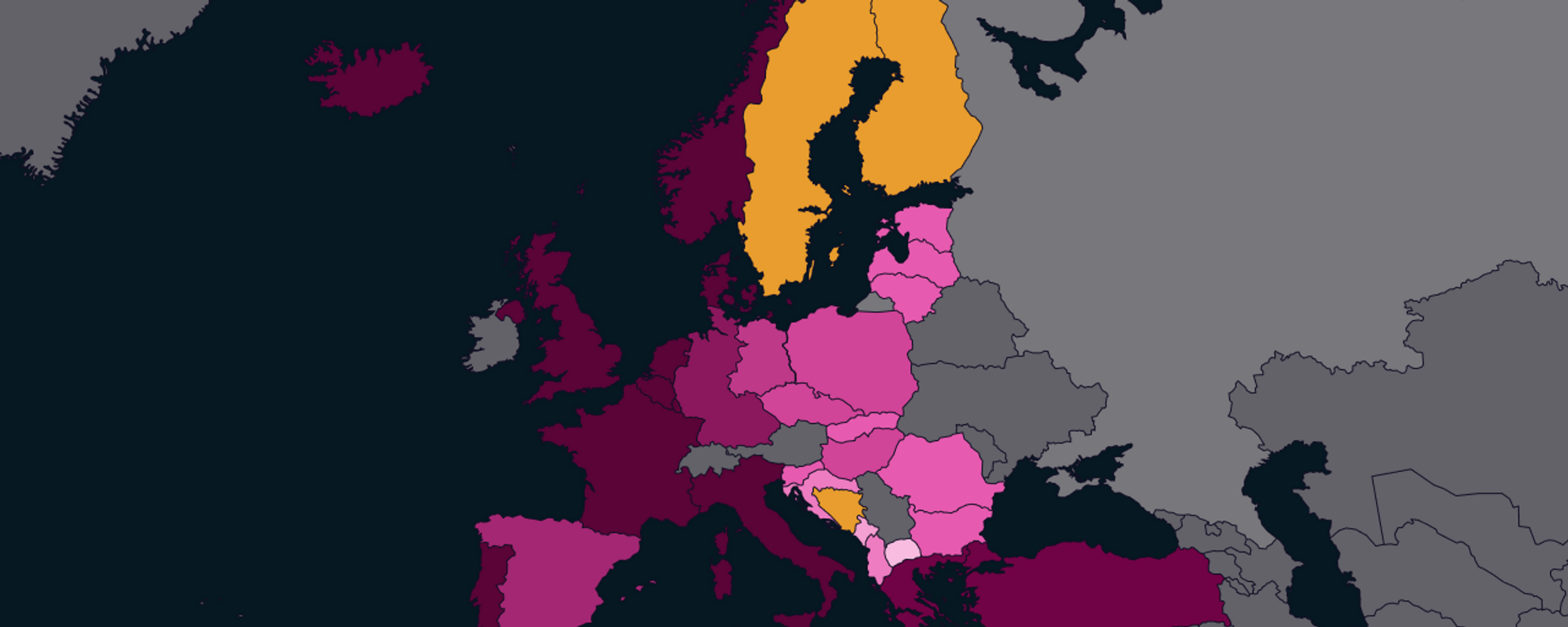https://sputnikglobe.com/20230711/vaudevillian-visitors-in-vilnius-preview-of-nato-summit-as-ukraine-tops-agenda-1111788168.html
Vaudevillian Visitors in Vilnius: Preview of NATO Summit as Ukraine Tops Agenda
Vaudevillian Visitors in Vilnius: Preview of NATO Summit as Ukraine Tops Agenda
Sputnik International
The crisis in Ukraine has consumed most of NATO’s attention (and well over $100 billion in taxpayer money) over the past 16 months. As members gather for the bloc’s 36th summit, the issue of Ukraine’s relationship vis-à-vis the alliance is at center stage. Sputnik outlines the issues on the table, and the decisions which may be reached.
2023-07-11T06:00+0000
2023-07-11T06:00+0000
2023-07-11T06:00+0000
analysis
joe biden
jens stoltenberg
volodymyr zelensky
ukraine
russia
nato
article 5
membership
alliance
https://cdn1.img.sputnikglobe.com/img/07e7/07/0a/1111788009_0:160:3072:1888_1920x0_80_0_0_6920f767433a1bc845f1d8dc988ac06f.jpg
First, some basic facts. This year’s summit is taking place in Vilnius, the capital of Lithuania, and runs over two days: July 11 and 12. The meeting will be attended by some 40 heads of state and over 150 other high-ranking officials from 48 delegations, bringing with them an army of 2,400 diplomatic workers, paper-shuffling, number-crunching bureaucrats, and of course, military officers.Lithuania will provide the delegations with 800 vehicles, and deploy up to 11,000 troops and police officers gathered from across the country, plus as many as 1,000 NATO troops from other countries, including Poland and Spain, to ensure security. Patriot and NASAMS air defense systems and a Combined Joint Chemical, Biological, Radiological and Nuclear (CBRN) defense task force have also been deployed.Lithuanian police commander Mindaugas Akelaitis has warned Vilnius residents not to engage in any activities which may be deemed suspicious during the summit, asking residents not to “use things like binoculars to prevent officers from thinking that they are people with malicious intent,” and to carry as few items as possible through city streets to avoid lengthy checks by law enforcement.‘Fateful’ SummitUkrainian officials have placed high hopes in the summit, with Ukrainian President Volodymyr Zelensky saying in January that the meeting could “become fateful for our entire Euro-Atlantic community.”Late last week, the Ukrainian leader, who will reportedly attend the summit in person, said he is hoping for a “clear signal, some concrete things in the direction of an invitation” to join the alliance. “We need this motivation,” he said. Diplomatic sources speaking to German media said that Zelensky even planned to ask for his country to be formally invited into NATO.“Several important decisions for Ukraine and NATO have already been agreed. Following the summit, our path to the alliance will definitely become shorter. And this is a very important result which – as in many other cases – we were told would not happen, but we did it together with our closest partners,” Ukrainian Foreign Minister Dmytro Kuleba said Saturday in a social media post.“I expect our leaders to reaffirm that Ukraine will become a member of NATO and unite on how to bring Ukraine closer to its goal,” NATO chief Jens Stoltenberg said last week, clarifying that he means membership after the conflict is concluded. “I’m confident that we’ll find a united way…to address the specific issue of membership,” he added.But a Ukrainian Defense Ministry advisor speaking anonymously has told UK media that it has been made clear to Kiev that it will not be receiving an invitation to join the alliance in Vilnius. “Membership is not on the table and it’s too late to change the agenda,” the official said. “Turkiye and Hungary have even opposed Sweden’s accession to the alliance. It’s not going to be possible to achieve anything [on Ukraine],” the official added.US President Joe Biden confirmed Friday that a formal invitation would not be forthcoming, citing the risk of entering into a de facto state of war with Russia.“For example, if you did support that, then, you know – and I mean what I say – we are determined to commit [to the defense of] every inch of territory that is NATO territory. It’s a commitment that we’ve all made no matter what. If the war is going on, then we’re all in war. We’re at war with Russia, if that were the case,” Biden said, referring to the bloc’s Article 5 commitment to collective defense.Germany, which has committed more military aid to Ukraine than any other country besides the US, and has lost the most as a result of frayed economic ties with Russia, has reportedly also ruled out Ukrainian NATO membership. Anonymous alliance officials and diplomats told German and British media that Berlin would only support “security guarantees,” which would “essentially block membership,” because the country has no desire to see Russia “potentially test Article 5.”Sources also said that Berlin and Washington are leading the push to block Ukraine’s NATO membership request, and pressuring other members into joining their position. On the other side are Poland and the Baltic countries, Romania, Turkiye, and France, who reportedly favor Kiev’s membership in the bloc, over the long term at least.What are These Mysterious ‘Security Guarantees’?In the days leading up to the summit, leading alliance members reportedly engaged in “frantic,” “last-minute” negotiations on providing Kiev with “umbrella” security assurances - basically a continuation of what the alliance is already doing: funneling tens of billions of dollars in arms to Ukraine, plus troop training, intelligence sharing, and reportedly a “multilateral declaration of some kind with countries making individual pledges.”Sources speaking to UK media said some alliance members have proposed a relationship with Ukraine akin to the US relationship with Israel, allowing the bloc to pump Kiev up with weapons indefinitely without being formally allied.What Other Topics are on the Table?While Ukraine is expected to be the main focus of the Vilnius meeting, other issues, including Sweden’s stalled membership bid, are expected to be brought up, and possibly resolved.On Sunday, the Turkish presidential office confirmed that President Recep Tayyip Erdogan would meet with President Biden on the sidelines of the summit, with their discussion including “Ukraine’s position in NATO, Sweden’s NATO membership, and the delivery of F-16” fighter jets to Turkiye.Ankara has held up Stockholm’s bid for membership in the alliance for more than a year now, citing the Nordic nation’s alleged failure to crack down on suspected Kurdish militants residing in the country which Turkiye classifies as terrorists, plus diplomatic fissures related to Quran burnings.NATO SpendingDefense spending is also expected to be discussed at length, specifically the requirement laid down at the NATO Summit in Wales in 2014 that all members must spend two percent or more of their GDP on the military. At a pre-summit press conference last week, Stoltenberg announced a real increase in defense spending of 8.3 percent by Europe and Canada in 2023, pointing out that this was “the biggest increase in decades,” and “the ninth consecutive year of increases in our defense spending.”At present, 11 of the bloc’s 31 members meet the two percent threshold, and Stoltenberg expects this number to “rise substantially next year,” notwithstanding the fact that the alliance already spends more on defense than all of its adversaries, and the rest of the world, put together.Shoring Up the Special RelationshipPresident Biden departed for Europe on Sunday, and before going to Lithuania, traveled to London for talks with Prime Minister Rishi Sunak and King Charles III. Although public statements regarding the talks said that they would include things like climate change, trade, military and technology cooperation, and Northern Ireland, the behind-the-scenes focus is of course expected to be Ukraine and NATO, with London playing the role of Washington’s most loyal ally in the conflict. It’s enough to recall how now former Prime Minister Boris Johnson personally traveled to Kiev last spring to sabotage a Russian-Ukrainian peace deal.What is NATO’s Role in the Ukraine Crisis’ Origins?The crisis in Ukraine is in many respects the consequence of the Western alliance’s decade-and-a-half long quest to pull Kiev into the bloc, despite repeated warnings by Russia that Ukrainian NATO membership was a “red line” for Moscow.The alliance first welcomed Ukraine’s “Euro-Atlantic aspirations for membership” at its 2008 summit in Bucharest, Romania. Two years later, the pro-Western government in Kiev was replaced in democratic elections by the government of Viktor Yanukovych, who pledged Kiev’s bloc neutrality. Four years after that, in 2014, Yanukovych was overthrown in a US-backed coup d’etat, with the crisis prompting Crimea to break off from Ukraine and rejoin Russia, and sparking a bloody conflict in Donbass.Moscow attempted to mediate the crisis over eight years through the Minsk peace accords, a comprehensive, 12-point peace deal calling for broad autonomy for Donbass as part of Ukraine. Successive governments in Kiev dragged their feet on the Minsk deal’s implementation. In the meantime, in 2019, Ukraine’s parliament amended the country’s constitution to cement Kiev’s aspirations to join NATO and the European Union.In December 2021, as war clouds gathered over Donbass, Moscow attempted one final push to prevent the escalation of the Ukraine crisis into a Russia-NATO proxy conflict, proposing comprehensive security agreements to the US and the alliance to reduce tensions, including a request for a commitment from the Western alliance not to allow Ukraine to join the bloc. The alliance refused, saying it would never reject its “open door” policy. Several weeks later, amid Russian intelligence reports that Kiev would try to resolve the Donbass crisis by force, Moscow kicked off its special military operation.
https://sputnikglobe.com/20230711/nato-vilnius-summit-to-fall-short-of-ukraines-expectations-1111794929.html
https://sputnikglobe.com/20230707/despite-zelensky-protestations-nato-statesmen-understand-zero-likelihood-for-ukraine-to-join-nato-1111733027.html
https://sputnikglobe.com/20230710/nato-allies-want-germany-us-to-take-stronger-stance-on-ukraine---reports-1111779498.html
https://sputnikglobe.com/20230707/nato-to-approve-multi-year-package-of-support-for-ukraine-in-vilnius-on-july-11-12---head-1111722365.html
https://sputnikglobe.com/20230703/we-need-more-money-nato-leaders-say-spending-must-increase-even-after-ukraine-conflict-1111644981.html
https://sputnikglobe.com/20230320/a-fateful-error-history-of-natos-expansion-1108611973.html
https://sputnikglobe.com/20230210/putins-2007-munich-speech-stark-prophecy-or-reasonable-warning-that-fell-on-deaf-ears-1107315834.html
ukraine
russia
sweden
Sputnik International
feedback@sputniknews.com
+74956456601
MIA „Rosiya Segodnya“
2023
News
en_EN
Sputnik International
feedback@sputniknews.com
+74956456601
MIA „Rosiya Segodnya“
Sputnik International
feedback@sputniknews.com
+74956456601
MIA „Rosiya Segodnya“
ukraine, nato, vilnius, nato summit, meeting, gathering, membership, defense spending, security guarantees, support, assistance, analysis
ukraine, nato, vilnius, nato summit, meeting, gathering, membership, defense spending, security guarantees, support, assistance, analysis
First, some basic facts. This year’s summit is taking place in Vilnius, the capital of Lithuania, and runs over two days: July 11 and 12. The meeting will be attended by some 40 heads of state and over 150 other high-ranking officials from 48 delegations, bringing with them an army of 2,400 diplomatic workers, paper-shuffling, number-crunching bureaucrats, and of course, military officers.
Lithuania will provide the delegations with 800 vehicles, and deploy up to 11,000 troops and police officers gathered from across the country, plus as many as 1,000 NATO troops from other countries, including Poland and Spain, to ensure security. Patriot and NASAMS air defense systems and a Combined Joint Chemical, Biological, Radiological and Nuclear (CBRN) defense task force have also been deployed.
Lithuanian police commander Mindaugas Akelaitis has
warned Vilnius residents not to engage in any activities which may be deemed suspicious during the summit, asking residents not to “use things like binoculars to prevent officers from thinking that they are people with malicious intent,” and to carry as few items as possible through city streets to avoid lengthy checks by law enforcement.
Ukrainian officials have placed high hopes in the summit, with Ukrainian President Volodymyr Zelensky saying in January that the meeting could “become fateful for our entire Euro-Atlantic community.”
Late last week, the Ukrainian leader, who will
reportedly attend the summit in person, said he is hoping for a
“clear signal, some concrete things in the direction of an invitation” to join the alliance.
“We need this motivation,” he said. Diplomatic sources speaking to German media said that Zelensky even
planned to ask for his country to be formally invited into NATO.
“Several important decisions for Ukraine and NATO have already been agreed. Following the summit, our path to the alliance will definitely become shorter. And this is a very important result which – as in many other cases – we were told would not happen, but we did it together with our closest partners,” Ukrainian Foreign Minister Dmytro Kuleba said Saturday in a social media post.
“I expect our leaders to reaffirm that Ukraine will become a member of NATO and unite on how to bring Ukraine closer to its goal,” NATO chief Jens Stoltenberg said last week, clarifying that he means membership after the conflict is concluded. “I’m confident that we’ll find a united way…to address the specific issue of membership,” he added.
But a Ukrainian Defense Ministry advisor speaking anonymously has
told UK media that it has been made clear to Kiev that it will not be receiving an invitation to join the alliance in Vilnius.
“Membership is not on the table and it’s too late to change the agenda,” the official said. “Turkiye and Hungary have even opposed Sweden’s accession to the alliance. It’s not going to be possible to achieve anything [on Ukraine],” the official added.
US President Joe Biden confirmed Friday that a formal invitation would not be forthcoming, citing the risk of entering into a de facto state of war with Russia.
“I don’t think there is unanimity in NATO about whether or not to bring Ukraine into the NATO family now, in the middle of a war,” Biden said.
“For example, if you did support that, then, you know – and I mean what I say – we are determined to commit [to the defense of] every inch of territory that is NATO territory. It’s a commitment that we’ve all made no matter what. If the war is going on, then we’re all in war. We’re at war with Russia, if that were the case,” Biden said, referring to the bloc’s Article 5 commitment to collective defense.
Germany, which has committed more military aid to Ukraine than any other country besides the US, and has lost the most as a result of frayed economic ties with Russia, has reportedly also ruled out Ukrainian NATO membership. Anonymous alliance officials and diplomats
told German and British media that Berlin would only support “security guarantees,” which would “essentially block membership,” because the country has no desire to see Russia “potentially test Article 5.”
Sources also said that Berlin and Washington are
leading the push to block Ukraine’s NATO membership request, and pressuring other members into joining their position. On the other side are Poland and the Baltic countries, Romania, Turkiye, and France, who reportedly favor Kiev’s membership in the bloc, over the long term at least.
What are These Mysterious ‘Security Guarantees’?
In the days leading up to the summit, leading alliance members reportedly engaged in “frantic,” “last-minute” negotiations on providing Kiev with “umbrella” security assurances -
basically a continuation of what the alliance is already doing:
funneling tens of billions of dollars in arms to Ukraine, plus troop training, intelligence sharing, and
reportedly a “multilateral declaration of some kind with countries making individual pledges.”
Sources speaking to UK media
said some alliance members have proposed a relationship with Ukraine akin to the US relationship with Israel, allowing the bloc to pump Kiev up with weapons indefinitely without being formally allied.
Others are reportedly skeptical of the "security guarantees" arrangement rhetoric, citing the potential for costs to spiral to exorbitant levels amid the recessionary and inflationary crunch facing many bloc countries. “The concern is that the more we talk about security guarantees, or assurances, or commitments, the more it becomes obvious that this is really expensive,” one senior European official directly involved in security discussions with Kiev has said.
What Other Topics are on the Table?
While Ukraine is expected to be the main focus of the Vilnius meeting, other issues, including Sweden’s stalled membership bid, are expected to be brought up, and possibly resolved.
On Sunday, the Turkish presidential office confirmed that President Recep Tayyip Erdogan would meet with President Biden on the sidelines of the summit, with their discussion including “Ukraine’s position in NATO, Sweden’s NATO membership, and the delivery of F-16” fighter jets to Turkiye.
Ankara has held up Stockholm’s bid for membership in the alliance for more than a year now, citing the Nordic nation’s alleged failure to crack down on suspected Kurdish militants residing in the country which Turkiye classifies as terrorists, plus diplomatic fissures related to Quran burnings.
Defense spending is also expected to be discussed at length, specifically the requirement laid down at the NATO Summit in Wales in 2014 that all members must spend two percent or more of their GDP on the military. At a pre-summit press conference last week, Stoltenberg
announced a real increase in defense spending of 8.3 percent by Europe and Canada in 2023, pointing out that this was “the biggest increase in decades,” and “the ninth consecutive year of increases in our defense spending.”
At present, 11 of the bloc’s 31 members meet the two percent threshold, and Stoltenberg expects this number to “rise substantially next year,”
notwithstanding the fact that the alliance already spends more on defense than all of its adversaries, and the rest of the world, put together.“We have to go and do our work – to reach the higher number of forces with a higher readiness, we need to exercise against the plans, we need to buy capabilities that we require,” NATO Military Committee Chairman Admiral Rob Bauer said last week. “We need more money, collectively, to pay for that,” he stressed.
Shoring Up the Special Relationship
President Biden departed for Europe on Sunday, and before going to Lithuania, traveled to London for talks with Prime Minister Rishi Sunak and King Charles III. Although public statements regarding the talks said that they would include things like climate change, trade, military and technology cooperation, and Northern Ireland, the behind-the-scenes focus is of course expected to be Ukraine and NATO, with London playing the role of Washington’s most loyal ally in the conflict. It’s enough to recall how now former Prime Minister Boris Johnson
personally traveled to Kiev last spring to sabotage a Russian-Ukrainian peace deal.
What is NATO’s Role in the Ukraine Crisis’ Origins?
The crisis in Ukraine is in many respects the consequence of the Western alliance’s decade-and-a-half long quest to pull Kiev into the bloc, despite repeated warnings by Russia that Ukrainian NATO membership was a “red line” for Moscow.
The alliance first welcomed Ukraine’s “Euro-Atlantic aspirations for membership” at its 2008 summit in Bucharest, Romania. Two years later, the pro-Western government in Kiev was replaced in democratic elections by the government of Viktor Yanukovych, who pledged Kiev’s bloc neutrality. Four years after that, in 2014, Yanukovych was overthrown in a US-backed coup d’etat, with the crisis prompting Crimea to break off from Ukraine and rejoin Russia, and sparking a bloody conflict in Donbass.
Moscow attempted to mediate the crisis over eight years through the Minsk peace accords, a comprehensive, 12-point peace deal calling for broad autonomy for Donbass as part of Ukraine. Successive governments in Kiev dragged their feet on the Minsk deal’s implementation. In the meantime, in 2019, Ukraine’s parliament amended the country’s constitution to cement Kiev’s aspirations to join NATO and the European Union.
In December 2021, as war clouds gathered over Donbass, Moscow attempted one final push to prevent the escalation of the Ukraine crisis into a Russia-NATO proxy conflict, proposing
comprehensive security agreements to the US and the alliance to reduce tensions, including a request for a commitment from the Western alliance not to allow Ukraine to join the bloc. The alliance refused, saying it would never reject its “open door” policy. Several weeks later, amid Russian intelligence reports that Kiev would try to resolve the Donbass crisis by force, Moscow kicked off its special military operation.
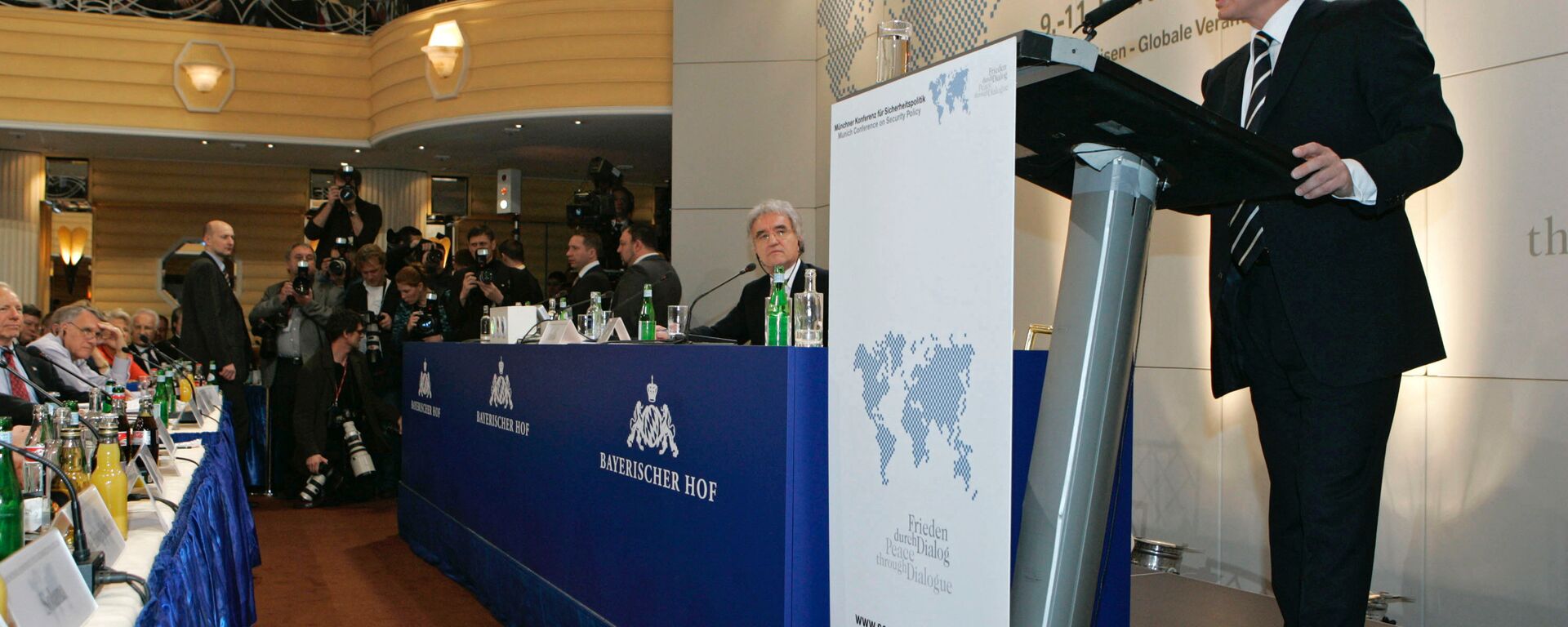
10 February 2023, 12:26 GMT
